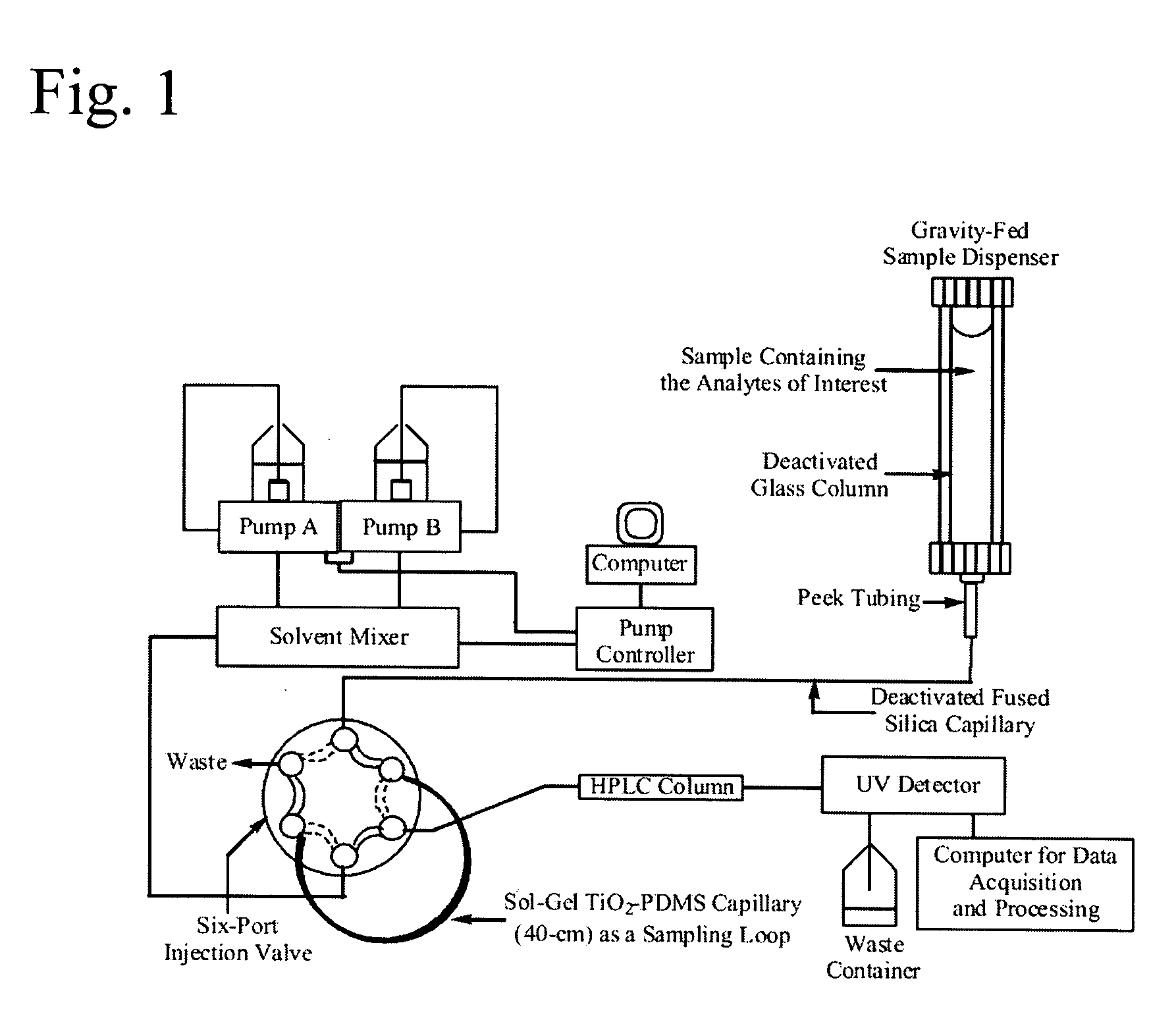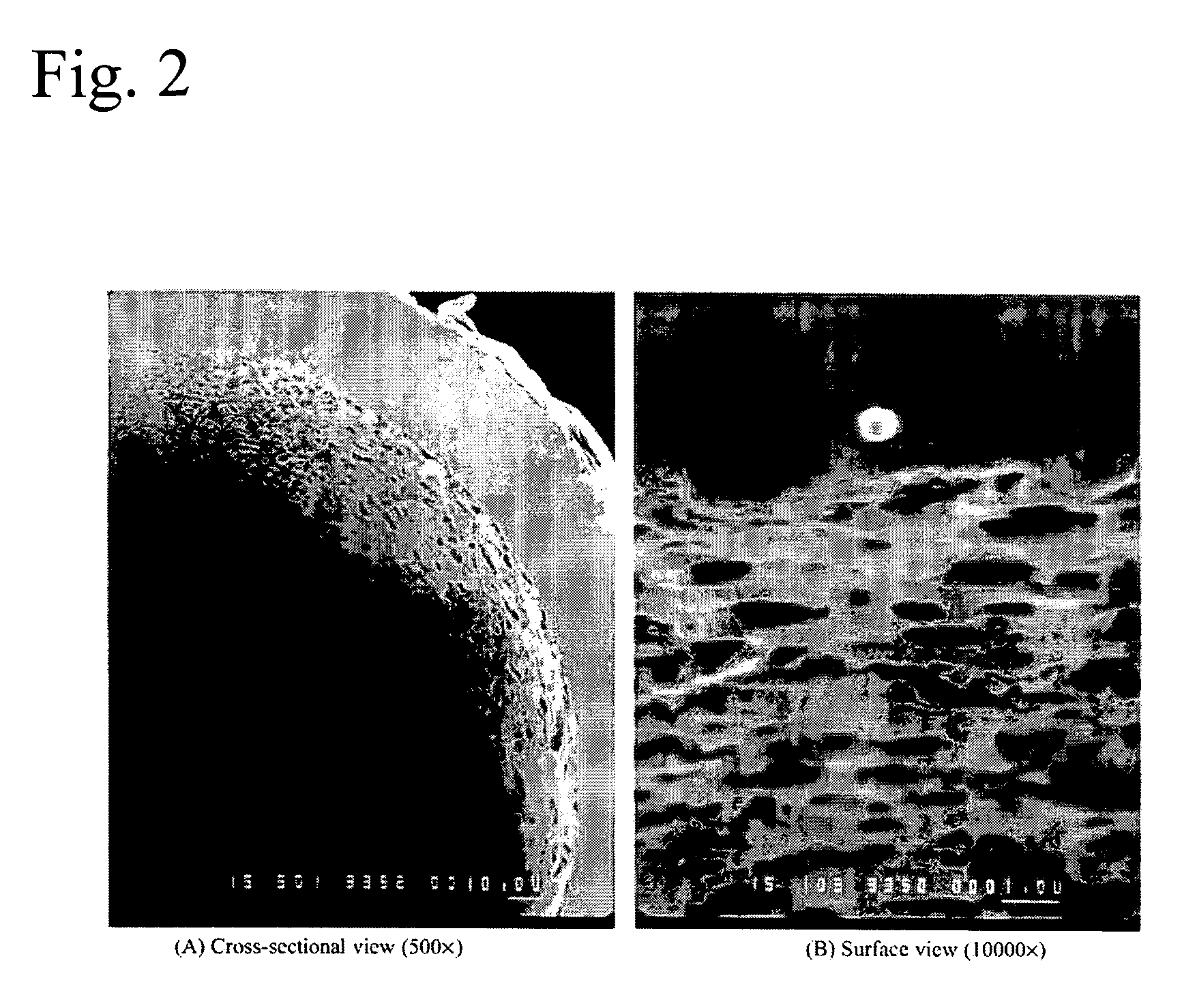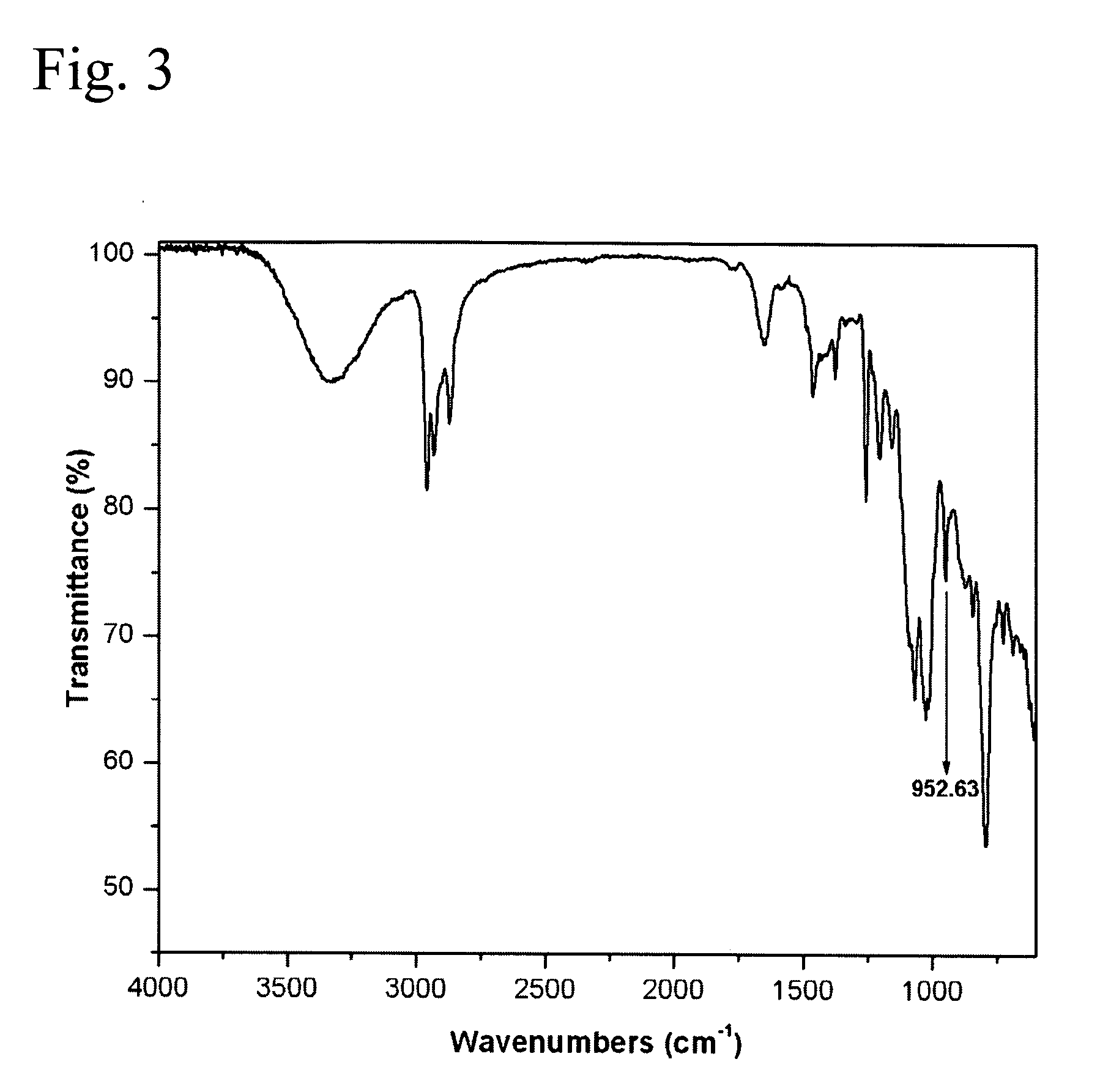Titania-Based Coating for Capillary Microextraction
a technology of titania-based coating and capillary microextraction, which is applied in the field of analytical separation and extraction technology, can solve the problems of insufficient thermal and solvent stability of conventionally prepared sorbent coating, low sample capacity, and mechanical damage to the fiber (especially the coated end) and achieves ph stability, prevent capillary breakage, and retain extraction performance
- Summary
- Abstract
- Description
- Claims
- Application Information
AI Technical Summary
Benefits of technology
Problems solved by technology
Method used
Image
Examples
example
Development and Characterization of the Microextraction Capillary Having Surface-bonded Sol-gel Titania Coating
[0062] 1. Equipment
[0063] On-line CME-HPLC experiments were carried out on a Micro-Tech Scientific (Vista, Calif.) Ultra Plus HPLC system with a variable wavelength UV detector (Linear UVIS 2000). A Nicolet model Avatar 320 FT-IR (Thermo Nicolet, Madison, Wis.) was used for FT-IR measurements. A reversed-phase ODS column (25 cm×4.6 mm i.d., 5 μm dp) was used for HPLC separation of the extracted analytes. A Fisher model G-560 Vortex Genie 2 system (Fisher Scientific) was used for thorough mixing of the sol solutions. A Microcentaur model APO 5760 centrifuge (Accurate Chemical and Scientific Corp., Westbury, N.Y.) was used for centrifugation of sol solutions. A Barnstead model 04741 Nanopure deionized water system (Barnstead / Thermodyne, Dubuque, Iowa) was used to obtain ˜16.0 MΩ-cm water. On-line data collection and processing were done using Chrom-Perfect (version 3.5) for...
PUM
| Property | Measurement | Unit |
|---|---|---|
| Temperature | aaaaa | aaaaa |
| Temperature | aaaaa | aaaaa |
| Time | aaaaa | aaaaa |
Abstract
Description
Claims
Application Information
 Login to View More
Login to View More - R&D
- Intellectual Property
- Life Sciences
- Materials
- Tech Scout
- Unparalleled Data Quality
- Higher Quality Content
- 60% Fewer Hallucinations
Browse by: Latest US Patents, China's latest patents, Technical Efficacy Thesaurus, Application Domain, Technology Topic, Popular Technical Reports.
© 2025 PatSnap. All rights reserved.Legal|Privacy policy|Modern Slavery Act Transparency Statement|Sitemap|About US| Contact US: help@patsnap.com



